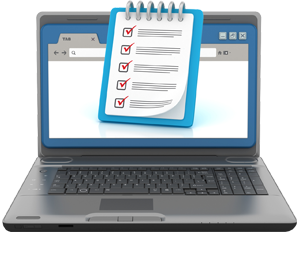This year is a little more challenging
 With tax season now officially underway, here are several tax documents that may be easy to miss in your mailbox or inbox:
With tax season now officially underway, here are several tax documents that may be easy to miss in your mailbox or inbox:
Child tax credit letter. From July through December 2021, the IRS paid out 50% of projected child tax credit payments to qualified households. The IRS is sending out a recap of these advance payments in Letter 6419 that you can use to correctly account for these payments on your tax return. This letter should have arrived in your mailbox by late January.
Updated info – The IRS alerted a small group of taxpayers that their Letter 6419 may have an incorrect dollar amount. If you believe your Letter 6419 might not be accurate, confirm the dollar amount by using your online account at IRS.gov.
Stimulus payment letter. The IRS issued millions of economic impact payments in 2021. The IRS is mailing a summary of these payments you received in Letter 6475. As with the child tax credit letter, you can use this letter to accurately report your economic impact payments on your tax return. This letter also should have arrived in your mailbox by late January.
Identification PIN. The IRS may have assigned you an Identity Protection PIN (IP PIN) to help protect your identity. An IP PIN is a six-digit number that prevents someone else from filing a tax return using your Social Security number or Individual Taxpayer Identification Number. This IP PIN is known only to you and the IRS. If you are a confirmed victim of tax-related identity theft and the IRS has resolved your tax account issues, the IRS will mail you a CP01A Notice with your new IP PIN each year.
Corrected tax forms. If an error is discovered on a tax form you’ve already received, a corrected version will be created, then mailed to both you and the IRS. You can also request a corrected tax form if you believe you found an error. Here are some of the forms you might see with corrections:
- Form W-2 from your employer that shows corrected wages, salary and taxes withheld
- Form 1099-INT or Form 1099-DIV from your investment broker that shows a revision in interest and dividend income
- Form 1099-NEC from a client to whom you provide services
- Form 1098 that shows how much mortgage or student loan interest you’ve paid
You may not be aware you were issued a corrected tax form until it shows up in your mailbox (or inbox). If you do receive a corrected form, don’t throw the old version away! Save both the original version and corrected version in case either are needed for future reference.
Often the ease of filing your tax return is dependent on having the correct information, so remember to look for everything, including these often-overlooked forms.


 Consider these suggestions for helping to make tax season smooth sailing this year for your small business:
Consider these suggestions for helping to make tax season smooth sailing this year for your small business: